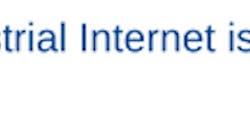The third principle of scheduling is that the advance maintenance schedule should be crafted for a week. The weeklong time frame is the best for maximizing productivity through goal-setting. This schedule consists largely of a simple listing or “batch” of work orders that doesn’t specify particular days for the work for the upcoming week. It’s important to note that the proposed schedule must be acceptable to both the maintenance supervisor and the operations leader for the area.
With the weekly schedule, there are some “hard” elements, such as particular work order that must be done on a Wednesday or an appointment to assist a contractor on a Thursday, but the schedule otherwise reflects a batch of work that could be coordinated with operations for LOTO as the week unfolds and completed by maintenance. To be clear: The weekly schedule is not five daily schedules pushed together and called a weekly schedule. Such advance daily schedules would have to be revised each day; this would run counter to our productivity goals. Plants seem to focus so much on formally moving jobs from day to day that they lose the sense of completing the week’s worth of work.
Finally, the proposed weekly schedule must be acceptable to maintenance supervisors and operations leaders. The backlog research that supports this schedule should promote reliability as well as convenience of maintenance execution and operations LOTO. When the weekly schedule is properly created, maintenance and operations should accept it.
The weeklong time frame is the right one for targeting improvements in maintenance productivity, and the best weekly schedule is simply a batch of work that provides a goal.



